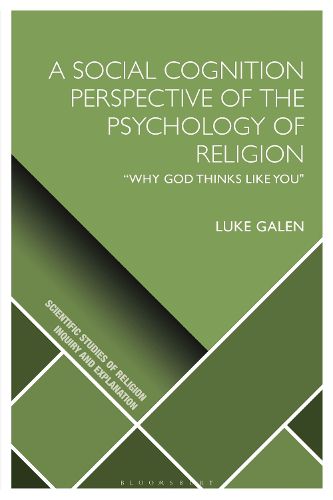Readings Newsletter
Become a Readings Member to make your shopping experience even easier.
Sign in or sign up for free!
You’re not far away from qualifying for FREE standard shipping within Australia
You’ve qualified for FREE standard shipping within Australia
The cart is loading…






An exploration of how psychological mechanisms produce intuitions, beliefs, behaviors, and experiences that are misattributed as being unique outcomes of religious or spiritual influences. Written from a social psychology perspective, this book proposes that religious and spiritual content represent one possible interpretation of the output of processes that also produce and govern nonreligious content.
In looking at why people believe in God, and why belief in God is often linked with a range of positive outcomes such as prosociality, morality, health, and happiness, the author uses a critical lens that challenges past theories of religion's functions and adds new perspectives into a discipline that is often limited by an exclusive focus on evolutionary theory.
This book features several cross-cutting themes-including "dual process" theory and an exploration of how various social cognition mechanisms and biases can channel or shape religious content-and provides a continuous through-line linking the underlying building blocks of thought, as studied in the cognitive sciences of religion (CSR) to specific religious and spiritual concepts using a social cognition lens.
$9.00 standard shipping within Australia
FREE standard shipping within Australia for orders over $100.00
Express & International shipping calculated at checkout
An exploration of how psychological mechanisms produce intuitions, beliefs, behaviors, and experiences that are misattributed as being unique outcomes of religious or spiritual influences. Written from a social psychology perspective, this book proposes that religious and spiritual content represent one possible interpretation of the output of processes that also produce and govern nonreligious content.
In looking at why people believe in God, and why belief in God is often linked with a range of positive outcomes such as prosociality, morality, health, and happiness, the author uses a critical lens that challenges past theories of religion's functions and adds new perspectives into a discipline that is often limited by an exclusive focus on evolutionary theory.
This book features several cross-cutting themes-including "dual process" theory and an exploration of how various social cognition mechanisms and biases can channel or shape religious content-and provides a continuous through-line linking the underlying building blocks of thought, as studied in the cognitive sciences of religion (CSR) to specific religious and spiritual concepts using a social cognition lens.